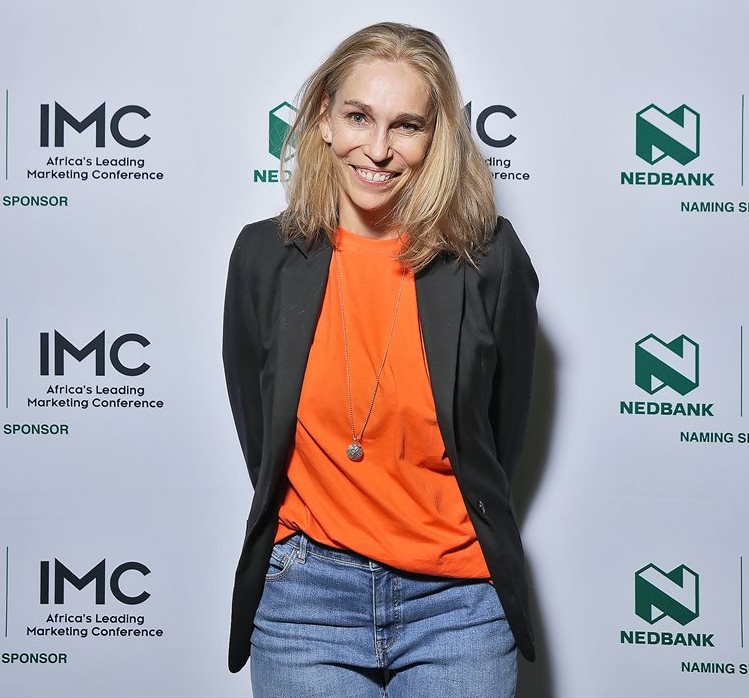Constrained purchasing power in markets around the world means heightened competition for hard-earned currency. Marketers must come up with fresh and clever strategies to get more from less.

Image supplied. Dale Hefer, CEO of the Nedbank IMC, says in 2024, the year of shrinking marketing budgets, marketers will have to get more from less
Into the omnichannel mix, users will become important message creators and disseminators.
Increasingly, marketers will become user-wranglers, requiring insight into how to guide an unrestrained and broad base of fellow content creators.
New technologies still being tried and tested in the market, will somehow demand that we embrace them, even in the void of the unknown.
It’s a risky business and not the easiest of times for marketers.
More than ever, we will have to dig deep, challenge ourselves and demonstrate resilience and agility.
The world is changing around us, and marketers - who stand at the nexus of culture, technology, and creativity - must adapt. This is not an easy feat.
Megatrends that will shape 2024
Some of the megatrends that will shape 2024 include participation, influencers, and technology.
- Everything, everywhere, all at once – participation
Brands will continue leaning into and experimenting with, user-generated content (UGC). UGC includes all forms of content from text and videos to images or reviews, created and shared by customers and brand advocates - rather than the brand itself.
Marketers, if you aren’t on board with this, you’d better cling hard to your floaty.
According to Marketingdive, a marketing and trends website, 61% of consumers claim that UGC will likely influence their decision to buy, compared to just 39% who believe a brand’s content is more influential.
The magic of UGC campaigns is that they provide a personalised, authentic, and emotional link for consumers. Xperiencify, a gamification learning software company, says that social media marketing campaigns including UGC receive 50% more engagement than those that don't.
And a whopping 86% of consumers are more ready to place their trust in brands using UGC instead of social media influencers. To give an idea of successful UGC marketing, consider Netflix’s marketing of its hit show Stranger Things season 2.
Fans were encouraged to share their themed content, art and experiences related to the series. With this strategy, Netflix grew its followers by 125,000 in just two weeks.
UGC is invaluable for brands wishing to establish a stronger connection with their audiences. Importantly, UGC demands trust: trust in our loyal user base, and trust in our brand reputation.
UGC can be a powerful testament to a brand, but to do so we have to ensure that our brands consistently live up to user expectations.
- We complete you - the influencer economy
Influencer campaigns are here to stay. Influencer Marketing Hub’s Influencer Benchmarking Report 2023 which surveyed more than 3,500 marketing professionals, found that 67% planned on increasing their influencer budgets last year, with influencer marketing expected to surge to $21.1bn.
While 2024 is likely to continue the trend, an interesting note in the report is a slight element of marketer negativity around influencer marketing. This is not surprising following a slew of poorly received influencer marketing campaigns in 2022 and 2023.
Beer brand Bud Light experienced a year it hopes never to repeat after significant backlash to its transgender influencer partnership. With sales still 30% down after a resultant boycott last year, it seems doubtful that Bud Light will recover in 2024.
Perhaps the combination of caution around influencer campaigns and shrinking marketing budgets has seen marketers focus more on small (nano - 39% and micro - 30%) influencers, rather than expensive, big names. Last year just 19% of brands used expensive influencers, followed by celebrity campaigns at 12%.
- How to say I love you in AI – technology
Journalist Cassidy Horton writes in Forbes magazine that 77% of companies are exploring or adopting AI.
In a recent marketing survey, nearly all respondents (94%) agreed that it is somewhat or very important for marketers to familiarise themselves with Gen AI and its applications.
Matt Rebeiro, an executive strategy director, says in marketing magazine The Drum, that 80% of CMOs will be driving marketing tech budgets towards AI spend in 2024, with a special particular focus on generative AI for enhanced personalisation and predictive analytics.
AI in marketing is expected to reach $107bn by 2028.
Beyond the hype, marketers will need to fully grasp what generative AI is, and how it can enhance consumer engagement. However, Rebeiro believes that it is uncertain whether brands will be able to deploy AI effectively enough to have an impact on consumers.
Horton cautions that getting ROI will require marketers to be able to leverage the technology’s full potential.
There is a lot at stake, but we’re not there yet, and marketers will have to work diligently - and learn fast - to make meaningful inroads in 2024.
Challenge accepted - embrace the hard stuff
From CMO to account executive to rogue marketer, we have the capabilities to guide, engage and inspire - but this is the year to dig deep.
This year the Nedbank IMC’s theme is Marketing. Challenge yourself. Keep learning. Keep leading. It serves as a clarion call to be all that we can be. Are you ready for the challenge?
The Nedbank IMC takes place on 19 September, in-person at the Focus Rooms, Johannesburg (800 delegates) and virtually (2000+ delegates).
For more information visit the website.














































